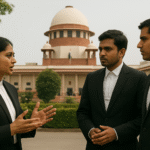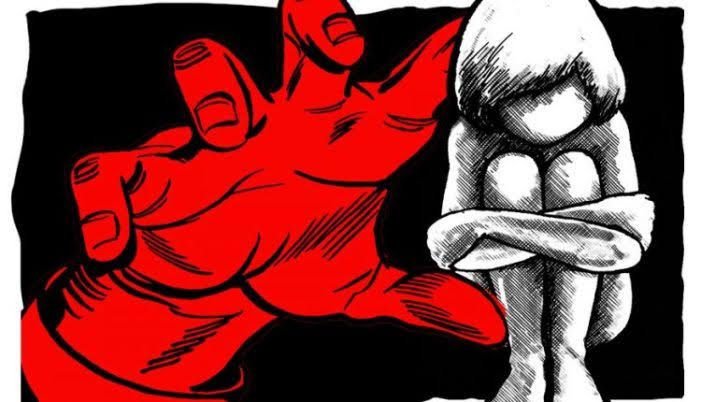Delhi High Court, In a strongly-worded judgment, today dismissed a petition filed by an accused, declared a Proclaimed Offender, seeking to quash an FIR of rape and POCSO charges against him based on a purported compromise with the victim’s parents.
Justice Girish Kathpala of the Delhi High Court rejected the plea with costs, delivering sharp reprimands to the petitioner’s counsel for his arguments.
The case, FIR No. 391/2024 registered at PS Sarita Vihar, involves serious allegations under Section 6 of the POCSO Act and relevant sections of the Bharatiya Nyaya Sanhita (BNS), including rape. The petitioner, Altaf, argued that the matter should be closed as the de facto complainant (respondent no. 2) had settled the dispute with him.
The court’s rejection was based on three critical factors:
- The petitioner is currently a Proclaimed Offender (absconding).
- The victim was and continues to be a minor.
- The compromise was arrived at by the parents, not the victim herself.
The bench took particular exception to the defense counsel’s argument that quashing was necessary to save the minor survivor from “stigma.”
“I find this argument obnoxious, to say the least. The stigma has to be, not on the victim of the wrong, but on the perpetrator of the wrong,” Justice Kathpala observed.
Emphasizing the need for a societal shift, the judge added, “There has to be paradigm shift in societal mindset by attaching stigma to the accused and not to the girl who underwent the horrid suffering by way of rape.”
Dismissing the validity of the compromise, the court stated that since the victim is still a minor, she is the only one who could potentially pardon the wrongdoer, and that too under specific conditions. The court found no merit in the parents’ settlement, noting, “It is the minor girl, and not her parents who was wronged and suffered because of the alleged act.”
The Additional Public Prosecutor, Ms. Manjeet Arya, informed the court about the accused’s status as a Proclaimed Offender and the victim’s minority, strongly objecting to the petition.
Concluding that it would not be in the interest of justice to quash the proceedings, Justice Kathpala dismissed the petition (CRL.M.C. 2363/2025) and imposed costs of ₹10,000 on the petitioner, to be deposited with the Delhi High Court Legal Services Committee within a week. A copy of the order has been sent to the trial court to ensure compliance.
FAQs: What You Must Know About the POCSO Act
Q1: What is the POCSO Act and who does it protect?

The POCSO Act, or The Protection of Children from Sexual Offences Act, is a comprehensive law established in 2012 specifically to protect children from sexual abuse, assault, and exploitation. It is a gender-neutral law, meaning it protects all children—both girls and boys—under the age of 18. The Act defines various forms of sexual abuse, including penetrative and non-penetrative assault, sexual harassment, and using a child for pornography. Its core purpose is to provide a child-friendly system for reporting, recording evidence, investigation, and speedy trial of these offences through special courts.
Q2: What is the punishment under the POCSO Act?
Punishment under the POCSO Act is stringent and has a graded structure based on the severity of the offence:
Aggravated Sexual Assault: Includes offences by a person in a position of trust (like a relative or teacher), or assault that causes disability or life-threatening injury. Punishment can be a minimum of 5 years to a maximum of life imprisonment, plus a fine.
Sexual Assault: Non-penetrative sexual contact of a sexual nature without penetration. Punishment is a minimum of 3 years up to 5 years of imprisonment, plus a fine.
Aggravated Penetrative Sexual Assault: This is the most severe category, which includes rape, gang rape, or assault leading to pregnancy or transmission of a disease. It carries a rigorous imprisonment term of 20 years to life, with a provision for the death penalty in case the offence results in the death of the child or is a repeat offence.
Using a Child for Pornography: Punishable with up to 5 years for first-time offenders and up to 7 years for subsequent convictions.
Q3: Is a compromise or settlement allowed in a POCSO case?
No. The Supreme Court and various High Courts have consistently ruled that compromises or out-of-court settlements are not permissible in POCSO cases. As reaffirmed by the Delhi High Court in a recent judgment (August 2025), these offences are considered a crime against the state and society at large, not just a private wrong. The court explicitly stated that the parents cannot compromise on behalf of a minor victim, as the offence was committed against the child, not them. The state has an absolute responsibility to prosecute the offender to ensure the safety and justice for the child, and the law does not recognize any settlement to quash such serious charges.

